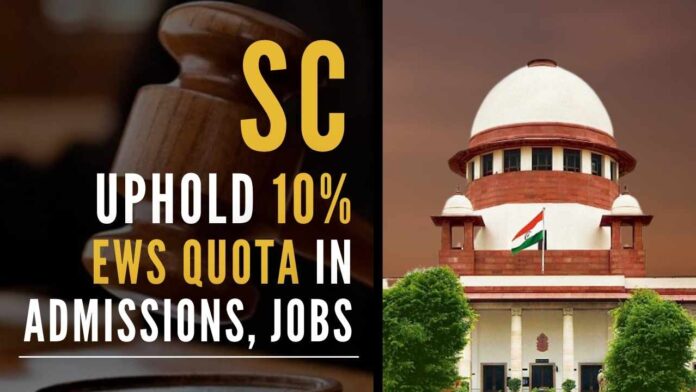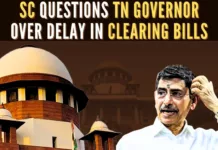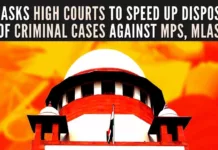
Apex Court upholds validity of 103rd Constitution amendment providing 10% reservation to EWS
The Supreme Court today upheld the 10 percent reservation to economically weaker sections (EWS) persons in government jobs and educational institutions.
Three out of five judges ruled that providing a 10 percent reservation does not violate the basic structure while only one of the judges dissented, saying India’s Constitution does not allow exclusion.
The apex court pronounced its judgment on a batch of pleas challenging the validity of the 103rd Constitution amendment that provides 10 percent reservation to economically weaker sections (EWS) persons in admissions and government jobs.
Justices Dinesh Maheshwari, Bela M Trivedi, and J B Pardiwala delivered the majority opinions on the five-judge Bench in an hour-long session which saw the pronouncement of a Constitution Bench judgment live-streamed for the first time.
The Centre defended the amendment, saying the reservation provided under it was different and the EWS quota does not violate the basic structure of the Constitution, as it defended the 103rd constitutional amendment. It has been given without disturbing the 50 percent quota meant for the socially and economically backward classes (SEBC), the government submitted before the top court.
A five-judge Constitution bench had reserved the judgment on September 27.
As the Court proceedings began, Chief Justice of India U U Lalit said that there are four judgments to be delivered on the issue relating to the constitutional validity of reservations of the EWS in higher education and issues of public employment on the basis of financial conditions.
Justices Dinesh Maheshwari, Bela Trivedi, and J B Pardiwala upheld the 103rd constitutional amendment for the EWS quota, saying it does not violate the basic structure of the Constitution. J Bhat, who authored the minority view for himself and the Chief Justice, said it was not right on the part of the government to say that opening up the EWS quota to backward classes would give them a “double benefit”.
Meanwhile, the majority of the judges favoured EWS reservations saying it is not discriminatory and does not alter the basic structure of the Constitution. Justice Dinesh Maheshwari said, “There are some issues and points of determination as to whether it violated basic structure, secondly if the exclusion of backward classes from getting EWS is violating the equality code and basic structure.”
EWS quota makes persons with less than Rs.8 lakh gross annual family income eligible. The quota excludes backward classes. Scheduled Castes, Scheduled Tribes, and Other Backward Classes who form ‘homogenous groups’ were included in the prevalent 50% reservation granted separately. Petitioners had argued in court that the exclusion of backward classes left only the middle class among the forward castes to reap the benefits of the EWS quota.
They held that making EWS quota applicable to private unaided institutions did not violate the Basic Structure of the Constitution.
PGurus is now on Telegram. Click here to join our channel and stay updated with all the latest news and views
For all the latest updates, download PGurus App.










